Peking University-Ghent University China-EU Law Seminar Successfully Held
Date:2024-12-03
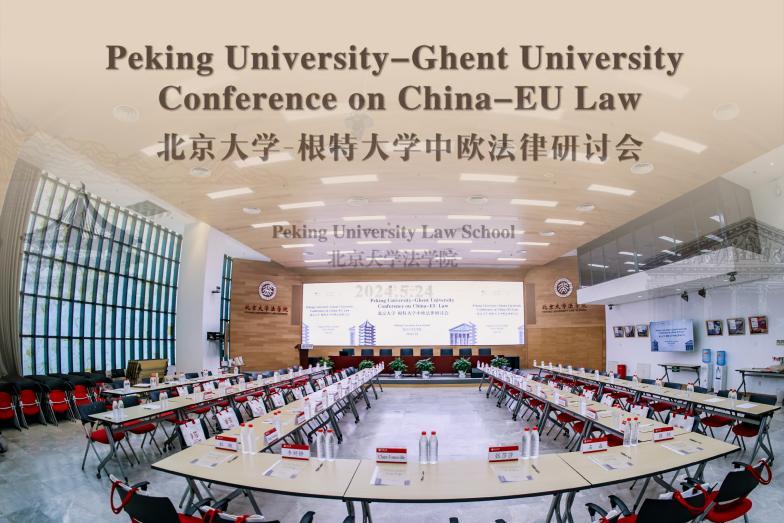
On 24 May 2024, the Peking University -Ghent University Conference on China-EU Law was held at Peking University Law School. The Forum aims to further promote academic exchanges and cooperation between Peking University and Ghent University, and to provide academic support for China-EU relations and global governance by discussing cutting-edge issues in the field of economic and trade relations, cross-border data flows, environment, society and governance.
Dean and Prof. Michael Tison, Faculty of Law and Criminology of Ghent University; Hans De Wulf, Peter Van Elsuwege, Prof. Diederik Bruloot, the Faculty of Law and Criminology of Ghent University; Yuanxiang Hu, The Class of 1978 Undergraduate Alumni, Peking University Law School, Managing Partner and Chief Investment Officer of the European Union China Joint Innovation Center, Honorary President of the Benelux Chamber of Commerce in China, and other experts, scholars and practitioners attended the Conference on invitation.
Opening Address
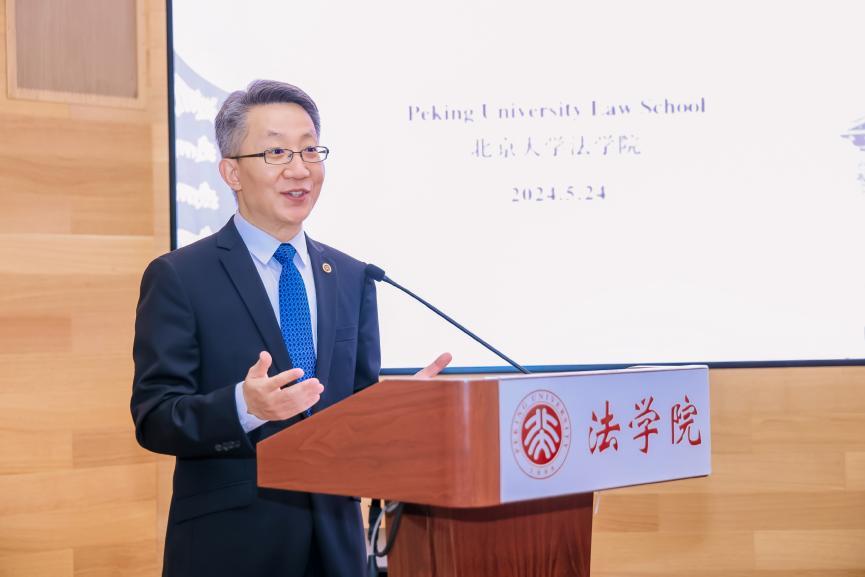
Dean and Prof. Guo Li, Peking University Law School, extended a warm welcome to the distinguished guests from Ghent University and the academic and practical circles on behalf of the Faculty. He said that the world is facing many challenges in the areas of economic and trade relations, data protection and environmental protection, and he is very pleased to have a partner like Ghent University that shares PKU Law's values and prospects. Since the establishment of cooperative relations in 2018, the two Faculties have made substantial progress in legal education and personnel development. The two Faculties' joint academic conference, on the 120th anniversary of Peking University Law School, will further deepen academic research cooperation, bring new academic inspiration to the China-EU legal field, and provide academic support for China-EU bilateral relations and global governance at large. Special thanks also go to Dr. Yuanxiang Hu, an alumnus of the Class of 1978, for the generous support of this Conference. As an alumnus of both Faculties, Dr. Yuanxiang Hu has made outstanding contributions to promoting in-depth cooperation and exchanges between the two Faculties.
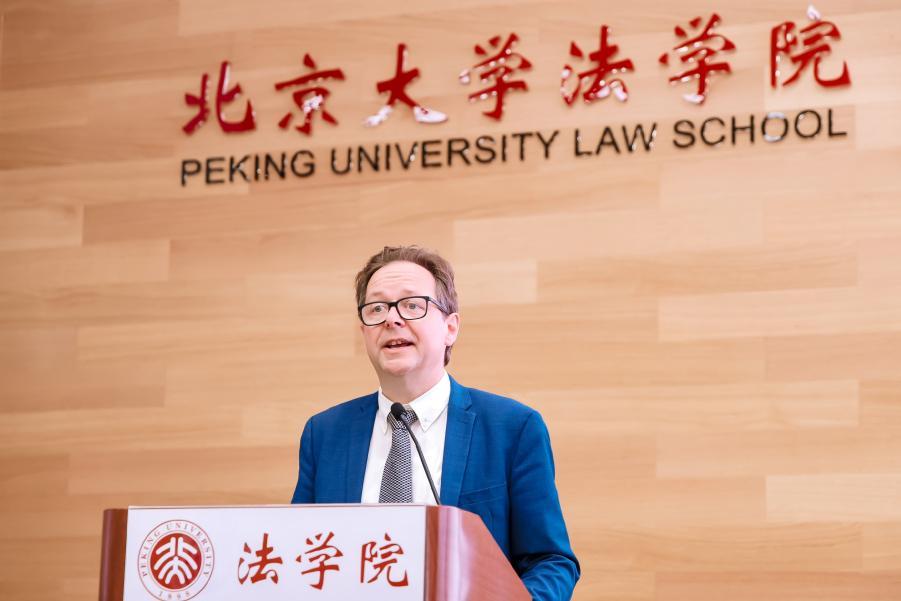
Dean Michael Tison reviewed the history of the two Faculties in establishing their cooperation. He was pleased that Ghent University has a partner like Peking University Law School. The Conference provides a precious opportunity for scholars from both Faculties, and even for Chinese academic and practitioners to enhance mutual understanding and in-depth exchanges. We are confident that the cooperation between the two Faculties will bear even richer achievements.
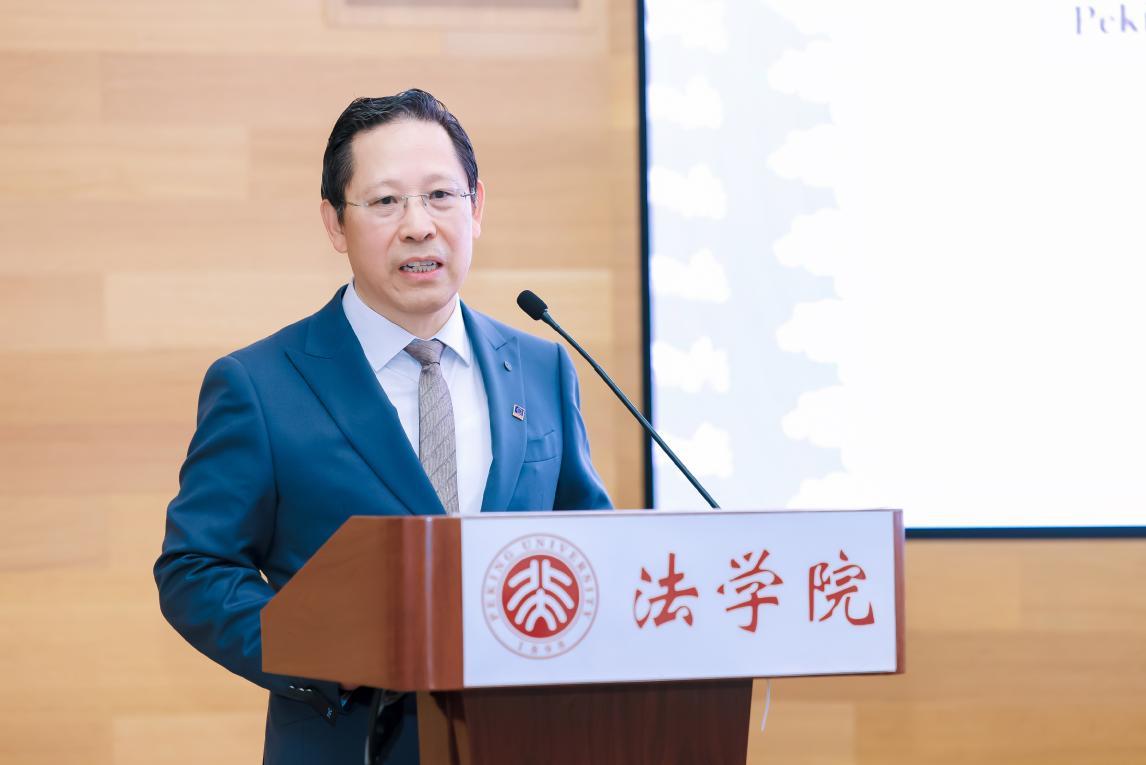
Yuanxiang Hu reviewed his studies at Peking University and Ghent University, and the development of China-EU economic and trade relations in the past 40 years. He said bilateral economic and trade relations have scored remarkable achievements, but still face many challenges. In order to build stronger and more sustainable economic relations between China and the EU, we look forward to experts and practitioners to better understand each other's legal systems, communicate and exchange views on a regular basis, and work for a more open legal framework.
Thematic discussion
During the conference, experts and scholars present exchanged views and discussions on three core issues, namely, "Legal Issues in China-EU Economic Relations", "Data Protection: A Sino-European Perspective", and "ESG and New Developments in International Investment Law".
Topic 1: Legal Aspects of China-EU Economic Relations
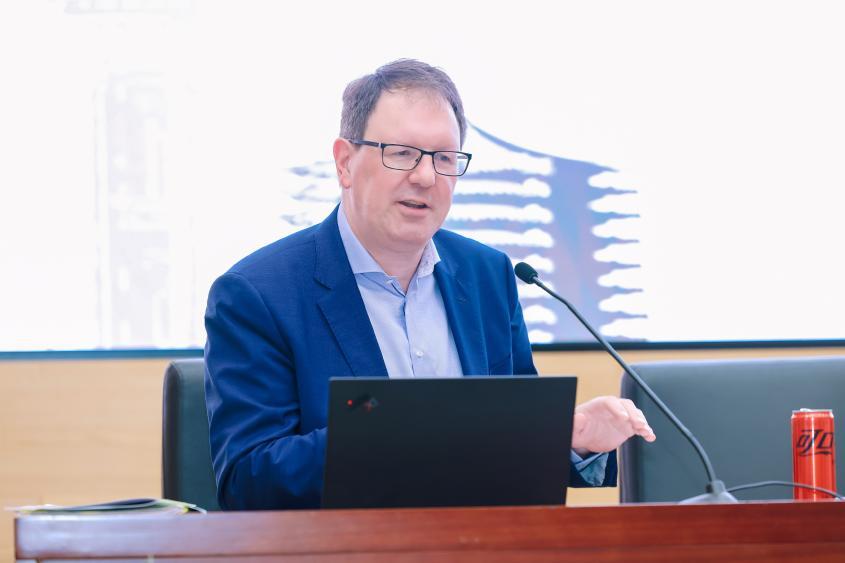
"The EU scrutiny of investments by non-EU investors in the context of the new EU examination regulation" was presented by Prof. Hans De Wulf, Faculty of Law and Criminology of Ghent University. He presented the background and rationale for the EU's economic security strategy in 2023 and five initiatives announced in 2024, including a revision of the rules governing the review of foreign direct investment, addressing the risks of outbound investment, more effective and coordinated export controls for dual-use technologies, increased funding for research and development of dual-use technologies at the European Union level and strengthened safety regulation in the area of research. He highlighted the framework, mechanisms, scope and criteria of the review of foreign direct investment under the new examination regulation, and pointed out that the review of foreign direct investment was expanding and would have a greater impact on foreign entities investing in the EU. However, the EU's review mechanism is insufficient in the areas of transparency, non-discrimination and legal certainty.
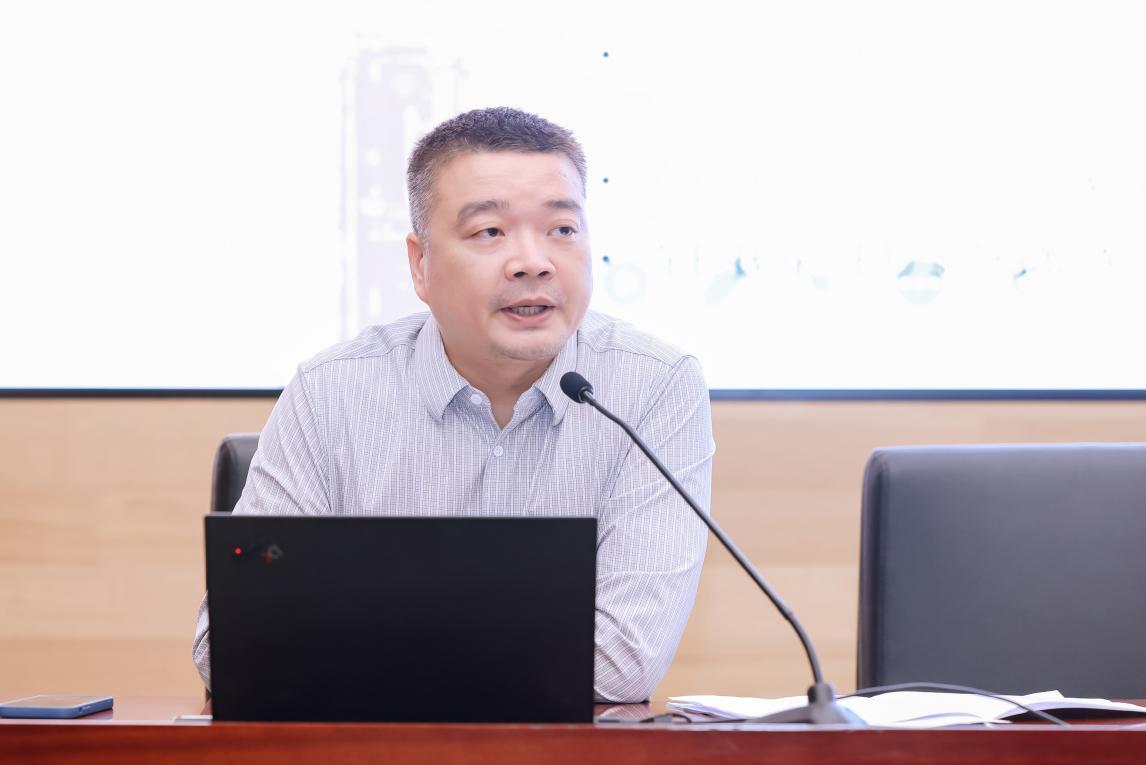
A.P. Ye Bin, Director of the Research Office of EU Law, Institute of European Studies of Chinese Academy of Social Sciences, presented a report entitled "The Transformation Trend of EU's Foreign Economic Law and Its Impact on China", analyzing the transformation trend of EU's Foreign Economic Law from the aspects of regulatory objects, tools, objectives, policy preferences and legal principles. At present, the EU's Foreign Economic Law has a wide range of tools, and more and more of them are implemented through unilateral rules. He said that this is not a simple evolution, but a paradigm shift, reflecting the EU's trend from "deregulation" in the past to "re-regulation" by emphasizing "economic security."
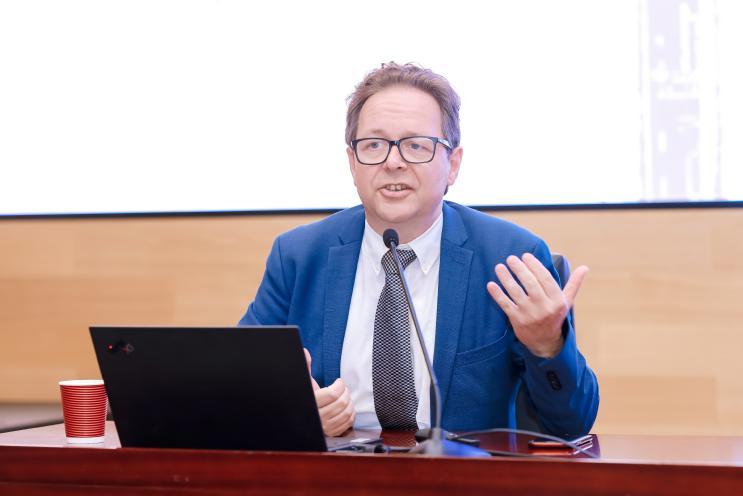
Prof. Michael Tison presented a report entitled "Trends in the Enforcement of Securities Regulation in the EU". He explained that the EU securities regulation is aimed at creating a competitive and resilient integrated EU capital market. To this end, EU rules need EU legislation has undergone changes from "minimum harmonization" to "maximum harmonization", from single regulation to multi-level regulation, and from legislative tools through directives to legislative tools through regulations. There are multiple levels of enforcement mechanisms of EU securities rules, including: enforcement by the member states' designated regulators; enforcement by private parties under member states' legislation, for example on prospectuses; and mixed enforcement mechanisms. He mentioned the failure of the European Securities and Markets Authority to transform into a true EU regulator, and the resistance the EU still faces in further strengthening regulation.
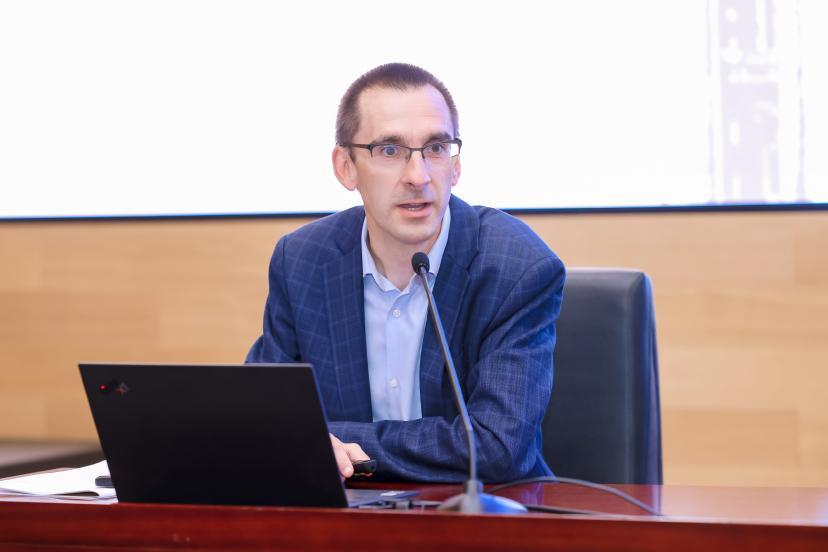
Prof. Peter Van Elsuwege, the Law and Criminology of Ghent University, presented a report entitled "EU Strategic Autonomy and Its Implications for China-EU Relations". He described the progress of EU legislation on foreign subsidies, international procurement instruments, foreign investment review, anti-coercion and carbon border adjustment mechanism and its relationship with EU strategic autonomy. The EU's strategic autonomy was first proposed in the area of foreign affairs and security, and then extended to the areas of economy, trade and health. Promoting strategic autonomy is the EU's choice in coping with the complex world situation, including economic policy between China and the US, the COVID-19 pandemic and the Ukraine crisis, which also affects China-EU relations.
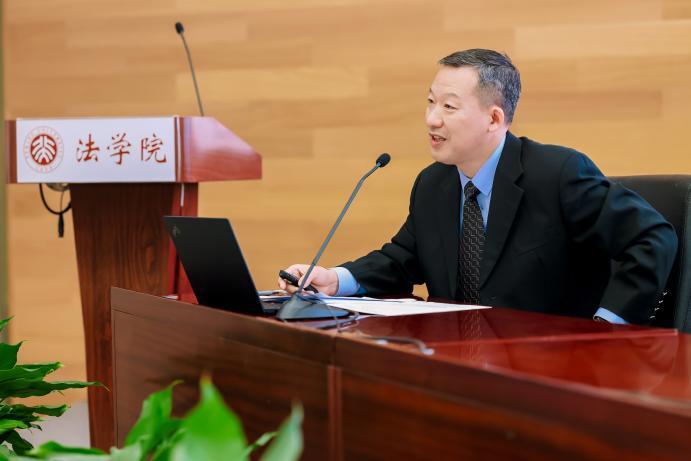
He Qisheng, Professor of Peking University Law School, presented a report entitled "The Hague Jurisdiction Project: The Last Bastion to Shake". Starting from the case of OPPO v. Siswell over Abuse of Market Dominance, he pointed out that parallel litigation is inevitable, but it wastes judicial resources, produces conflicting judgments and leads to conflict of judicial powers. At present, there are two basic approaches to solving parallel litigation, namely the United States' "better court approach" and the EU's "prior admissibility principle", and there is also the "anticipatory recognition theory". But all three solutions have drawbacks.
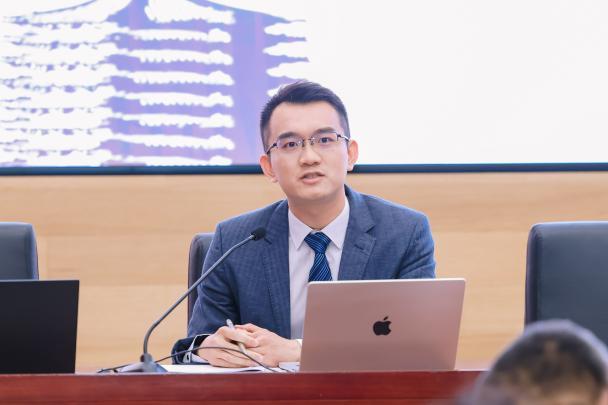
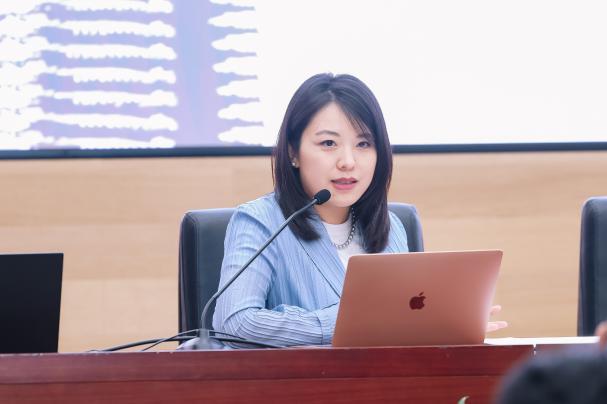
Chen Xiaohang, Postdoctoral Researcher of Peking University Law School, and Li Yanjing, Principal Delegate of De Wit Law Firm served as the moderators of the discussion. Dr. Xiaohang Chen recalled that the International Law Association was founded in Belgium in 1873, and said that there are similarities between the situation today and that of 150 years ago. On the one hand, there is no such thing as international economic law and private international law that are universally applicable to all countries; on the other hand, similar to the Industrial Revolution, the development of technologies such as artificial intelligence has become the problem itself. That is why today's constructive dialogue is very meaningful. Li Yanjing introduced the practice of the China Representative Office of De Wit Law Firm in Belgium providing legal services to Chinese investors in Europe and European investors in China, pointing out the pressures and challenges faced by Chinese investors under the EU's foreign direct investment review mechanism.
Topic 2. Data Protection: A China-EU Perspective
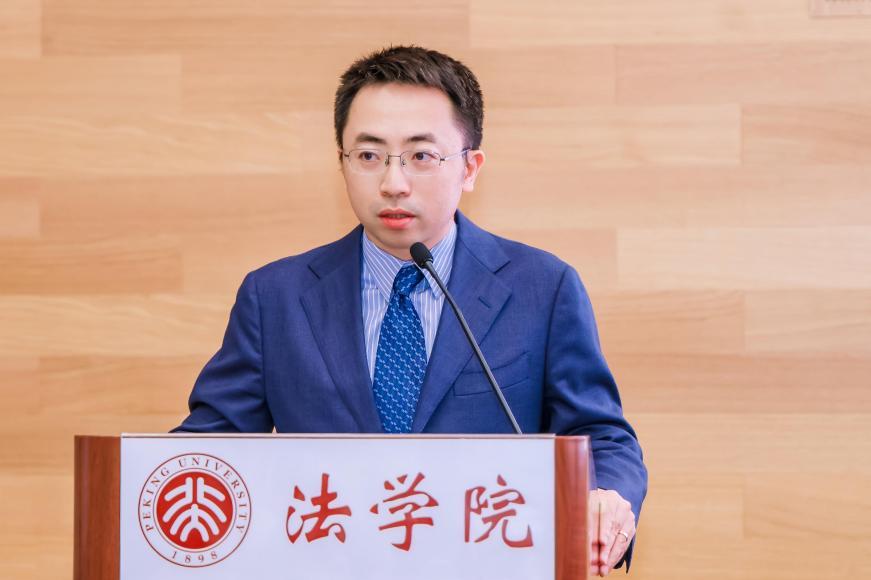
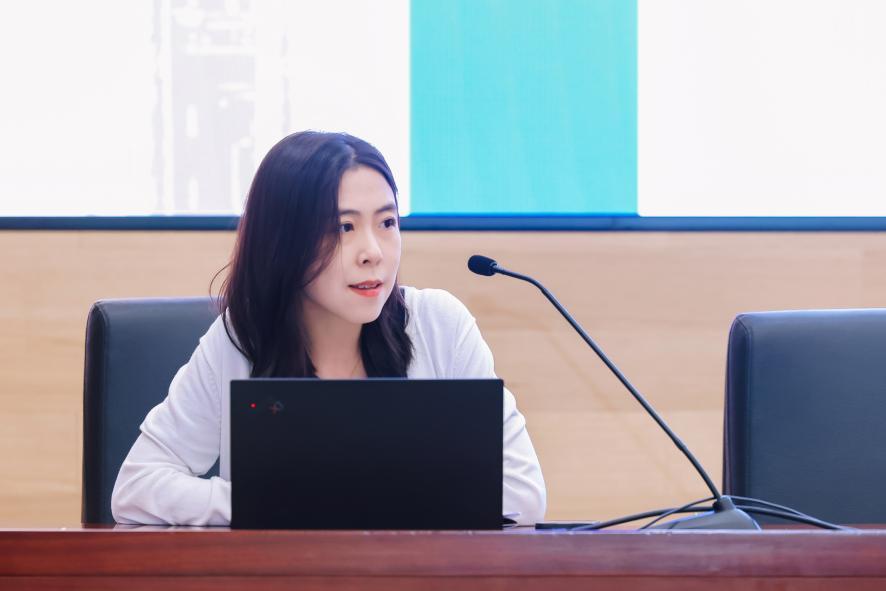
Zhang Yueming, Postdoctoral Research of the Research Group of Law and Technology in Ghent University, delivered a speech entitled "Data Protection in the Context of China-EU Relations", discussing EU standards on cross-border data transfer, China's Data Protection framework and legal challenges faced in practice on the issue of "how to ensure the data rights of EU citizens when the personal data is transferred from the EU to China". The speech also contains proposals from three perspectives: the EU, China and China-EU bilateral cooperation.
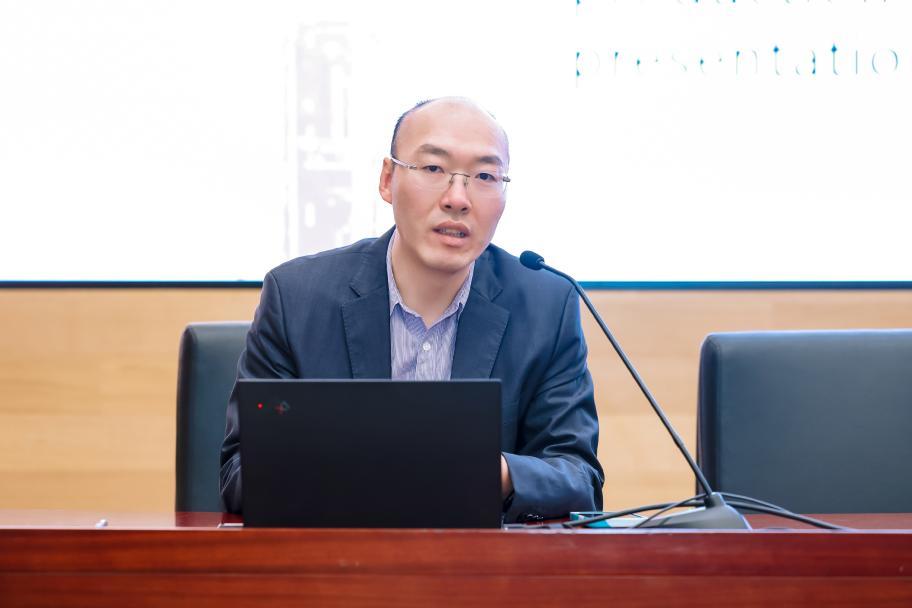
A.P. Hu Ling, Peking University Law School, made a report entitled "Production Modes in the Data Economy and Its Legal Implications", pointing out that the real issues worthy of discussion are: who wants to own the ownership or other types of rights in data and the motivations for claiming such rights? He introduced the changes of production modes under the new economy, and pointed out the important role of platforms in the new production process. He elaborated on the evolution of the Internet in China from the perspective of "illegal rise", and the "platform contracting out system" as the governance method of platforms in China today, pointing out that any stable ownership claim in fact contains elements of the market structure, the state of technology and institutional costs. Therefore, an effective ownership system needs to adapt to the market situation and production conditions at the relevant time.
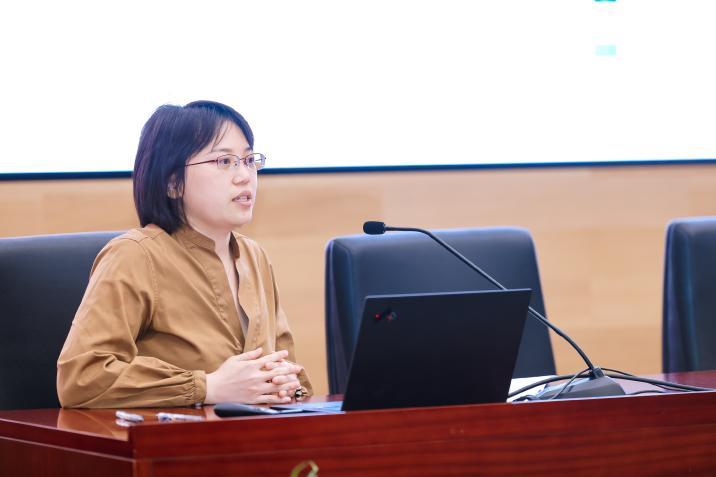
Sun Jingzhou, Postdoctoral Researcher of Peking University Law School, made a report entitled "Legal Issues Concerning AI Use of Personal Public Data", pointing out that the training of AI models usually relies on massive amounts of publicly available personal data, and personal data is included in the contents generated by AI. However, general purpose AI systems have compliance issues under both China and the EU legal frameworks on personal data protection. She suggests that: China and the EU could formulate special guidelines on the compliance of personal data related to artificial intelligence, setting out proper compliance obligations for artificial intelligence systems according to different risk levels; emphasize the principle of data quality and require artificial intelligence systems to provide sources of training data or justify the acceptability, relevance and reliability of the data. In general, a regulatory framework featuring "easy entry and strict exit" and "hierarchical governance" should be adopted with respect to AI data compliance.
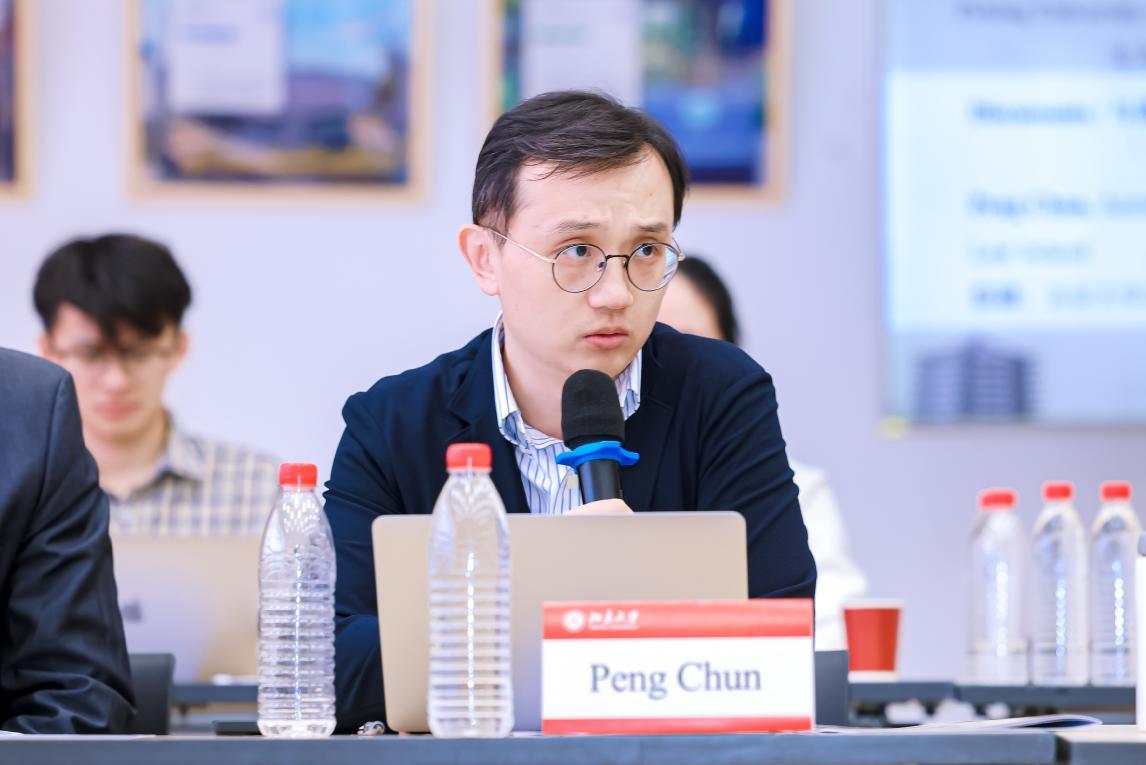
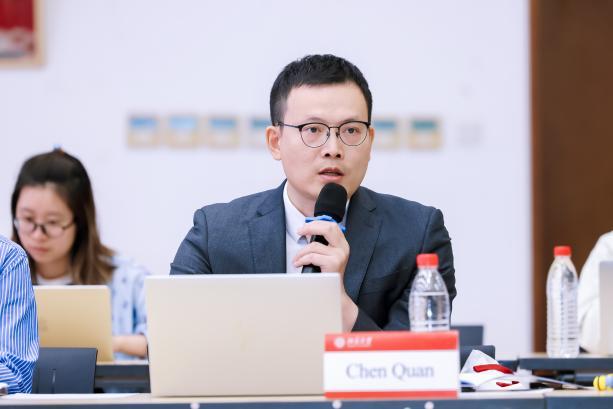
Peng Chun, Assistant Dean and A.P. of Peking University Law School, and Chen Quan, a partner from Rocpals Law Office, made comments on this topic respectively. A.P. Peng Chun and the three reporters discussed issues such as the judicial remedy mechanism under China's data protection framework, regulatory analysis relating to data economy and property rights, and how general purpose AI should be consistent with the purpose restriction in data protection. From a practitioner's perspective, Mr. Chen shared his practical experience and thoughts on data security and personal information protection. He introduced the cases of the Court of Justice of the European Union and the Internet Court of Beijing, and introduced and commented on the Provisions on Promoting and Regulating the Cross-border Flow of Data. He pointed out that when determining whether the use of personal information already made public constitutes "reasonable use", the factors such as whether the subject of personal information has expressly refused to provide such information, whether it will have a significant impact on personal rights and interests, etc.
Topic Three: ESG and New Developments in International Investment Law
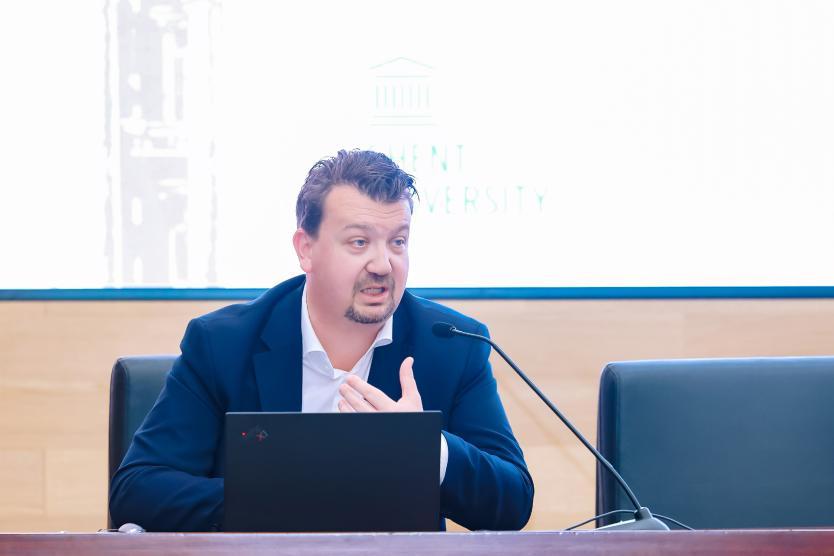
Diederik Bruloot, Professor of the Law and Criminology of Ghent University, presented a report entitled "The Impact of the Recent European Wave of ESG Legislation on International Investment Law", analyzing the procedural and substantive obstacles faced by the host country in raising counterclaims in international investment arbitration. Recent EU ESG legislation includes the Corporate Sustainability Reporting Directive (CSRD) and the Corporate Sustainability Due Diligence Directive (CSDDD). Although the Sustainability Due Diligence Directive has no direct impact on alleviating the procedural dilemmas of counterclaims, it imposes legally binding obligations on companies on human rights and environmental protection at the substantive level, and may serve as a legal basis for host countries to bring counterclaims against non-EU investors.
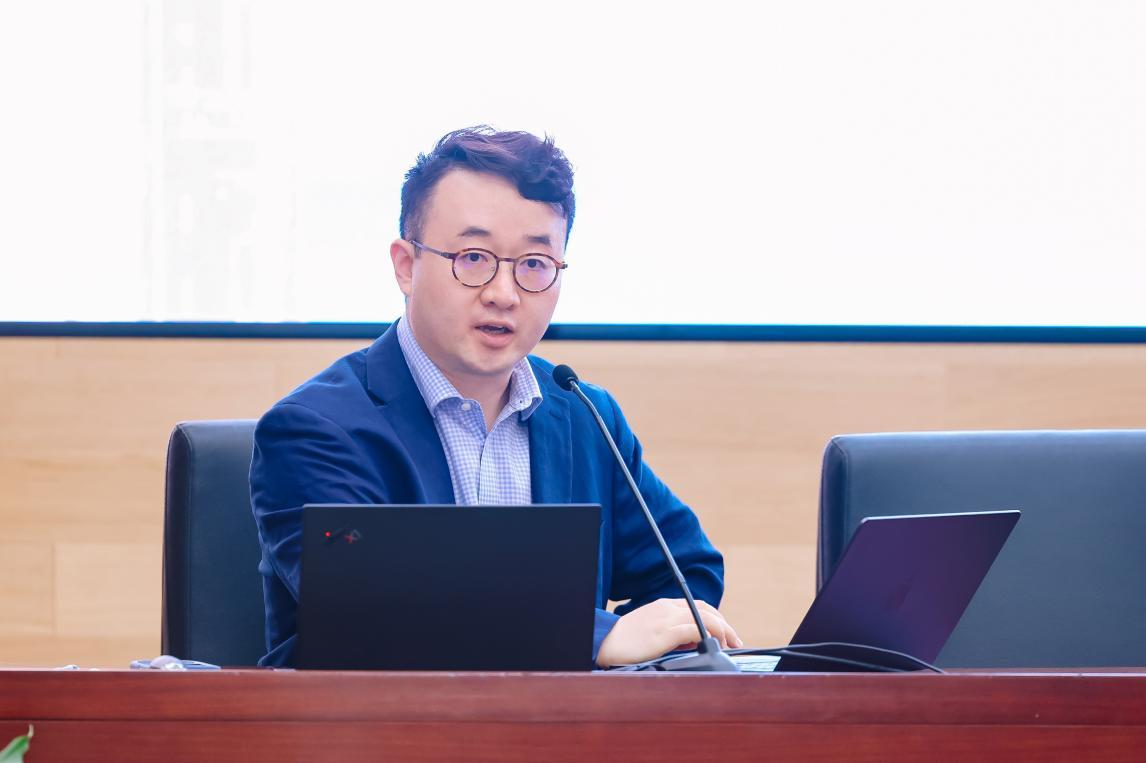
Zhang Kangle, Assistant Professor of Peking University Law School, presented a report entitled "The Capital Logic of Sustainability: Behind the Rise of ESG". ESG investment has gained widespread attention in recent years, and many legal actions have emerged to protect this investment mechanism. However, these legal actions have not contributed to the improvement of ESG. It is worth considering what interventions we need to consider further in the face of the crises of sustainability, climate change, etc.
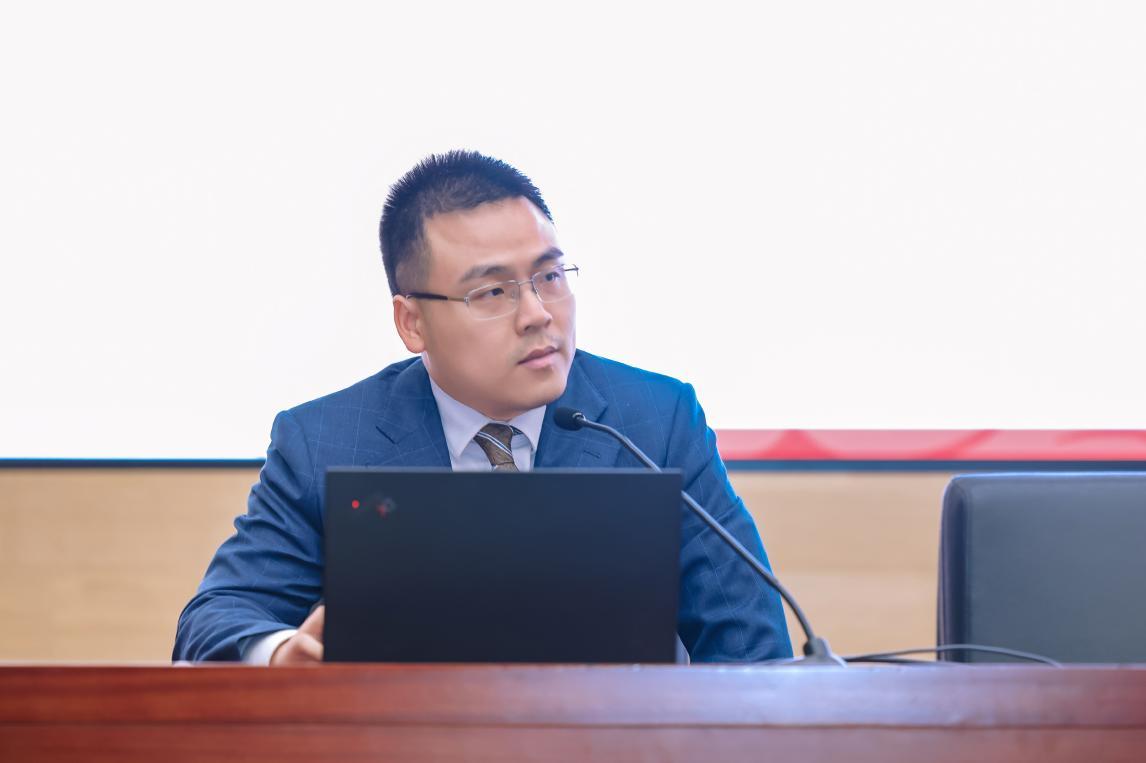
Wu Kaijie, Assistant Professor of Peking University Law School, presented a report entitled "Analysis of the Legality of the EU Carbon Border Adjustment Mechanism". Through the explanation and analysis of the general exception clause of Article 20 of the GATT, he believes that the EU carbon border adjustment mechanism may not be able to satisfy the conditions for relying on the Article 20 exception as a deviation from the GATT's non-discrimination obligation. Because the mechanism is still in a transitional stage, its legality depends on the details of the rules that are finalized.
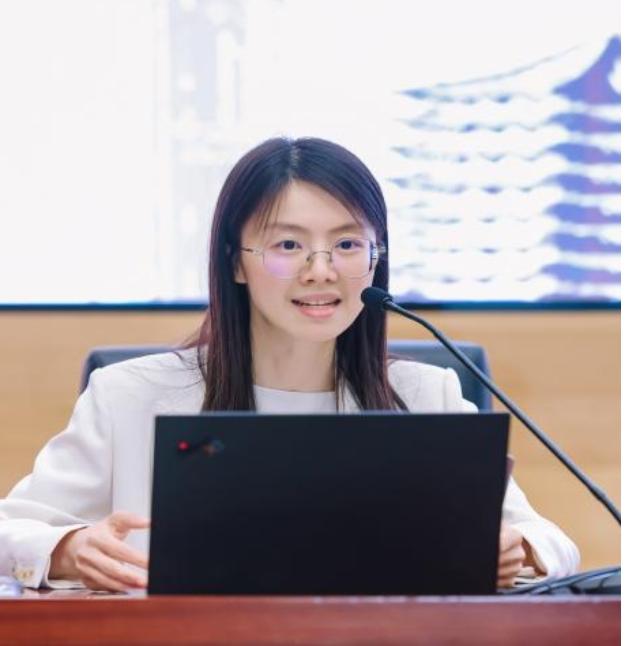
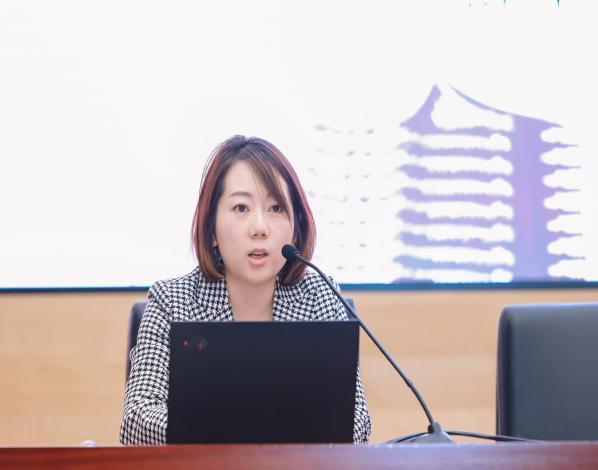
Liu Siyi, Lecturer of Law School of University of International Relations, and Zhang Shasha, Director of International Department of Europe China Joint Innovation Center, made their comments respectively. Liu Siyi believes that the new ESG legislation imposes high mandatory requirements on foreign direct investment and trade in goods, which are likely to lead to the formation of market access barriers. ESG, investment, and trade are all the core elements behind the legislation, and they are intertwined. What needs to be focused on is, does the EU exercise its authority correctly, does it have an appropriate legal basis, and does it fully comply with the principle of subsidiarity? ESG legislation may also be compatible with international law. Zhang Shasha said that more and more Chinese companies are focusing on ESG issues in their investment activities, but still face challenges such as lack of awareness and capacity, lack of information disclosure, conflict between short-term interests and long-term investment returns, and compliance costs.
Concluding Speech
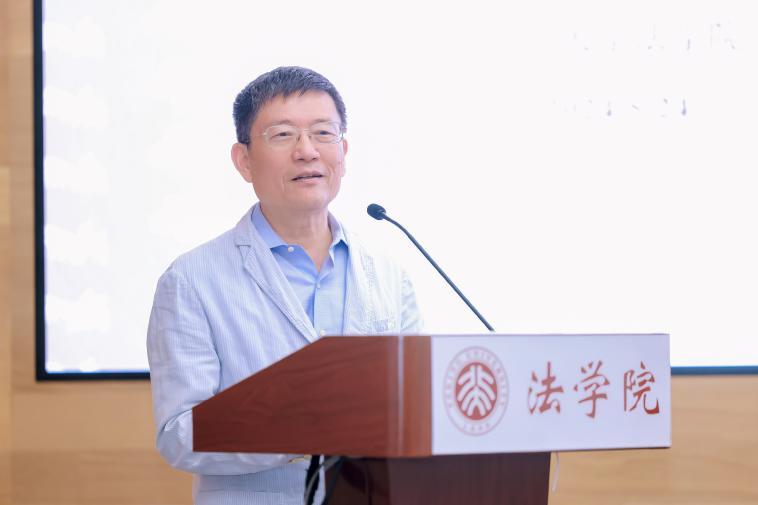
Li Hongji, Partner of Commerce & Finance Law Offices congratulated the conference in his concluding speech. He said that exchanges and dialogue between Chinese legal practitioners and their foreign counterparts are essential. By remaining open, we will grow stronger.
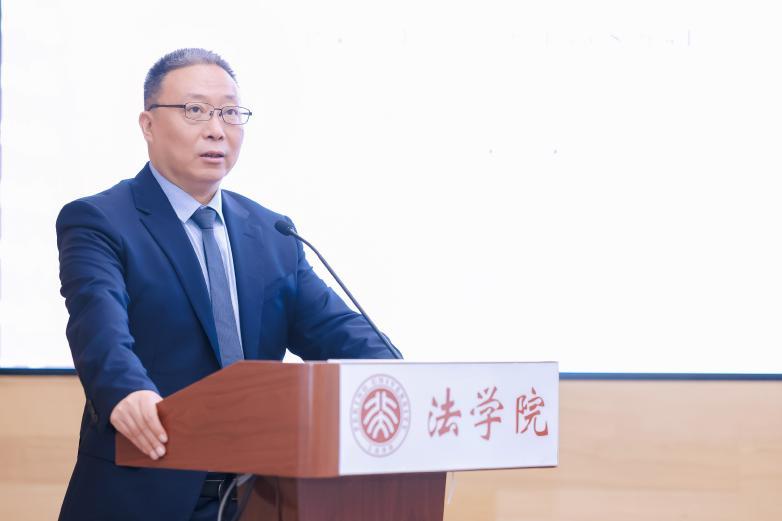
Zhang Zhiyong, A.P. of Peking University Law School, thanked Alumnus Yuanxiang Hu for his great support and contribution, and the guests and all sectors of the community for their support. He said that the topics under discussion today are global, and that, in the context of globalization, we must work together to find solutions. This conference is just the beginning. We look forward to more academic exchanges and deeper cooperation between the two schools in the future.
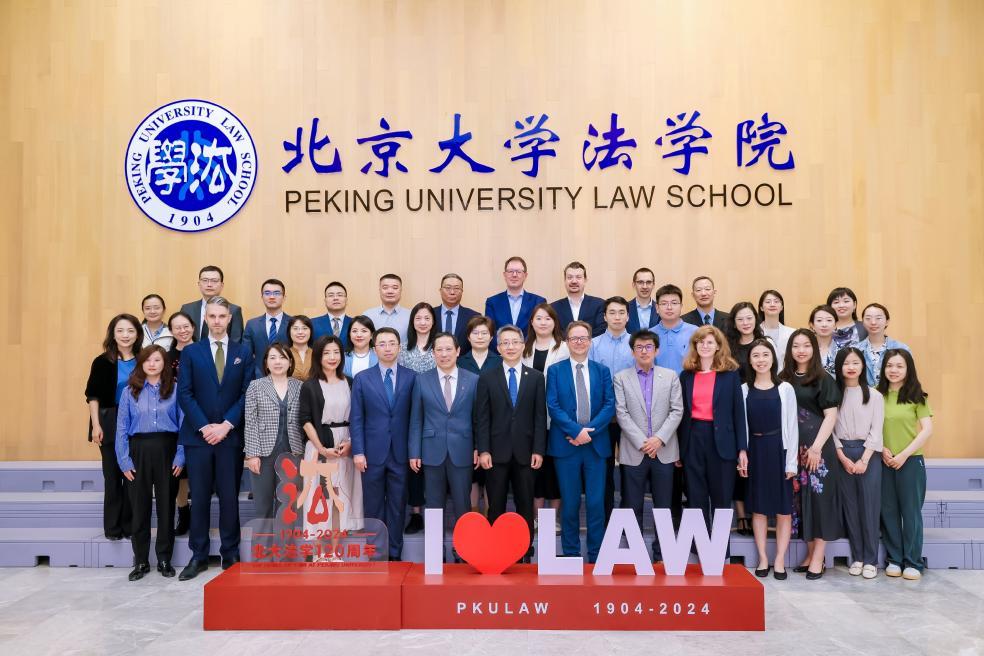
Translated by: Zeng Zhu
Edited by: Guo Zhongqi



